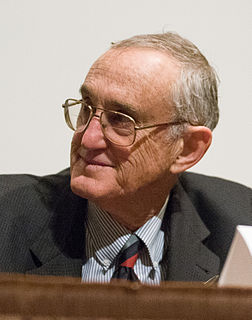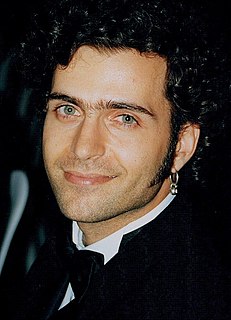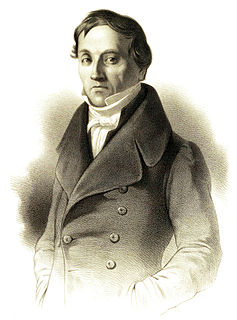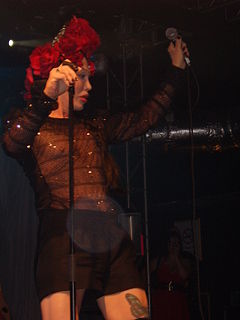A Quote by Theodore Stevens
The internet is a series of tubes, and all of those tubes are filled with Joe Francis' semen.
Related Quotes
I just the other day got, an internet was sent by my staff at 10 o'clock in the morning on Friday and I just got it yesterday. Why? Because it got tangled up with all these things going on the internet commercially... They want to deliver vast amounts of information over the internet. And again, the internet is not something you just dump something on. It's not a truck. It's a series of tubes.
My first project was to build an ionization gauge control circuit for Professor Edgar Everhart's Cockcroft-Walton accelerator. In those days, vacuum tubes were the active components in electronic circuits. I can still recall the warm orange glow of the vacuum tube filaments and the cool blue glow of the thyratron tubes.
The development of the Vertebrate proceeds from an axis upward, in two layers, which coalesce at the edges, and also downward, in two layers, which likewise coalesce at the edges. Thus two main tubes are formed, one above the other. During the formation of these, the embryo separates into strata, so that the two main tubes are composed of subordinate tubes which enclose each other as fundamental organs, and are capable of developing into all the organs.
For there is a growing apprehension that existence is a rat-race in a trap: living organisms, including people, are merely tubes which put things in at one end and let them out at the other, which which both keeps them doing it and in the long run wears them out. So to keep the farce going, the tubes find ways of making new tubes, which also put things in at one end and let them out at the other.
Given one has before oneself a strong, healthy, youth rich in spirited blood and a powerless, weak, cachectic old man scarcely capable of breathing. If now the physician wishes to practise the rejuvenating art on the latter, he should make silver tubes which fit into each other: open then the artery of the healthy person and introduce one of the tubes into it and fasten it into the artery; thereupon he opens also the artery of the ill person.





























